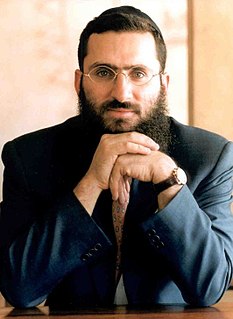A Quote by Kenneth Keniston
It is misleading to discuss recent changes in family life without emphasizing the fact that for generations some Americans have had to raise children under particularly appalling pressures. Although much of what is worrying American parents is shared by them all, the most grievous problems are those that especially afflict a large minority--the poor, the nonwhite and, in various ways, the parents of handicapped children.
Related Quotes
Parents of handicapped children are occasionally embarrassed or hurt by others who awkwardly express sympathy but cannot know or appreciate the depth of the parents love for a handicapped child. Perhaps there is some comparison in the fact that there is no less love in families for the helpless infant who must be fed, bathed, and diapered than for the older but still dependent members. We love those we serve and who need us.
One can tell a child everything, anything. I have often been struck by the fact that parents know their children so little. They should not conceal so much from them. How well even little children understand that their parents conceal things from them, because they consider them too young to understand! Children are capable of giving advice in the most important matters.
Children grow rapidly, forget the centuries-long embrace from their parents, which to them lasted but seconds. Children become adults, live far from their parents, live their own houses, learn ways of their own, suffer pain, grow old. Children curse their parents for their wrinkled skin and hoarse voices. Those now old children also want to stop time, but at another time. They want to freeze their own children at the center of time.
You must learn to look at people who are angry with you straight in the eye without getting angry back. When children see their parents treating them this way, they then recognize the parents' authority. It speaks louder than words. Their new respect for the parents is as good for them as it is for the parents. It never works to demand respect of children. It must be given willingly as a result of strength of good character in the parents, which is manifested by their non-reaction to stress in the children.
With 28 million children eating lunch at school every day in the United States, I believe government has an obligation to ensure parents have some peace of mind when they send their children off to school in the morning, .. Since children are particularly vulnerable to foodborne illness, schools must be vigilant in their efforts to ensure that cafeterias are not putting children at risk. These changes in law will support parents who want to work with school principals and food-service directors to ensure a safe environment.
There are great parents of small children - they keep their little hair in bows - but those parents are not always good parents of young adults. As soon as their children get up to some size, it's "Shut up, sit down, you talk too much, keep your distance, I'll send you to Europe!" My mom was a terrible parent of small children but a great parent of young adults. She'd talk to me as if I had some sense.
What I have most learned from my son is to respect him and to love him unconditionally. I believe that if parents respect their children and educate them with love and justice (and not just with words, but with their own behavior) the relationship with their children will be wonderful. Then parents will always be proud of their children, and children will always be proud of their parents. There will be peace in the family, and the home will be a sanctuary.
The next step is for the great teachers to arise, and for them to clearly understand the challenges ahead and mentor accordingly. Where most generations focus the education of their children on preparing to make a living or succeed financially, leadership generations are taught by parents who see a higher role for their children.
When parents see their children's problems as opportunities to build the relationship instead of as negative, burdensome irritations, it totally changes the nature of parent-child interaction. Parents become more willing, even excited, about deeply understanding and helping their children. . . . This paradigm is powerful in business as well.
I think, at the end of the century we'll have a generation of parents and a generation of children who won't have had the deep satisfactions of being parents and being children in the way that they might have and are going to spend a lot of time fretting and worrying and being hovered over for nothing. The question isn't so much "What will happen in the long run?" but "What's happening to people's lives right now?"

































